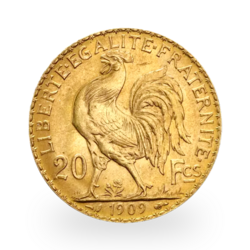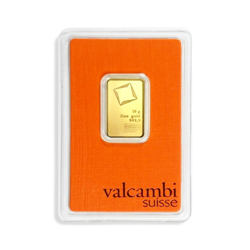The coming French presidential elections are increasing the uncertainty surrounding the euro. “The possibility of a Marine Le Pen victory is still haunting investors”, writes Les Echos on March 27. In that article a banker says, “This program of leaving the euro zone could have monstrous impacts. If France were to exit the euro zone, it would probably put an end to the euro currency project. This wouldn’t be just marginal – it would be systemic.”
A meeting was held at the beginning of March between several important asset managers and one of the Front National’s economists, Philippe Murer. They were “stunned”, according to the Journal du dimanche. A banker says, “He told us that if France exits, it will cause the euro zone to explode... and to prevent massive outflows of capital, the government shall follow the money transfers everywhere in order to convert them into new francs... or that the case of Argentina was an example to follow... really? When the Argentine peso collapsed in 2001, investors were quick to invest, but savers were ruined.” Switching from the euro to the franc is already a systemic shock, but to implement inquisitorial exchange controls and print even more money than the ECB to finance higher spending (this so-called “economist” values the energy transition at 1.6 trillion!) should put France on the same path as Venezuela. Investors and savers have much to worry about.
Can this scenario take place? According to UBS Wealth Management, the probability of a Marine Le Pen victory is 40%! Other banks give it a 10-20% probability, according to Les Échos. According to a CNRS researcher who had predicted Donald Trump’s victory as soon as the summer of 2016, the Front National candidate has a chance to win. That being said, there are differences between campaign declarations and the real exercise of power – a return to reality can be brutal and, sometimes, helpful.
Another political risk is looming over the euro: the elections in Italy, which will take place before February, 2018. Beppe Grillo’s 5-Star Movement is leading the polls, and it is pushing an exit from the euro zone! An exit, either of France or Italy, would definitely kill this one-currency project, not to mention all the troubles such an event could generate.
That being said, the euro could very well explode by itself, without any help from any country, because of its sheer concept. In fact, the euro is not a real currency – it is a hybrid. When the European Central Bank (ECB) was created, the national central banks did not disappear or become regional branches – it was layered on top. The whole forms the European Central Banks System (ECBS) and financial compensations are made within. Anyone can observe this by looking at the euro notes in his wallet: the serial number starts with a letter and, if you’re in France, it will probably be a U, in Italy an S, in Germany an X, etc. (complete list)
In real terms, it means that when an Italian buys a Mercedes, it ends up being a claim from the German central bank (Buba) on Italy’s central bank. Thus Germany, an exporting country, ends up with enormous and growing claims on the debt-accumulating countries of the south. This is what is called the Target 2 balance. Remember this phrase – it will soon be front news. This balance is more and more off: Germany has record claims of 814 billion euro, Italy has a debt of 365 billion euro (France is almost in balance). If Italy were to exit the euro, it would refuse to reimburse this amount, which would be Germany’s financial system’s loss... such is the nature of the fragmentation bomb at the core of the European currency.
Whatever happens (election upsets or financial accident) the euro is really at risk, and it could explode. And don’t count on the new franc or the new lira for protection if those currencies are to be manipulated by the authorities, as seems to be the case. Protection will come in the form of physical gold – savers beware.
Reproduction, in whole or in part, is authorized as long as it includes all the text hyperlinks and a link back to the original source.
The information contained in this article is for information purposes only and does not constitute investment advice or a recommendation to buy or sell.

















